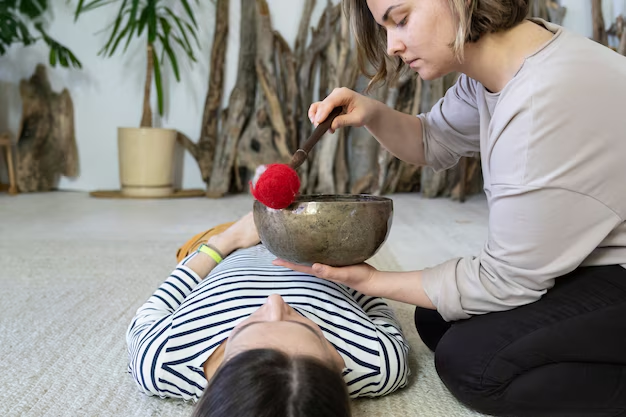Ease Your Mind: Powerful Techniques to Lower Anxiety
In today’s fast-paced world, anxiety can feel like an unwelcome companion—always present and hard to shake off. Whether driven by work stress, social pressures, or personal expectations, anxiety doesn't have to dominate your life. Understanding how to manage it is vital, and there are numerous strategies to regain your calm and balance. Let’s explore ways to lower anxiety through practical, effective methods that can help you regain control.
Understanding Anxiety: The Why and How
Recognizing the Causes
Anxiety can be a natural response to stress but understanding its root causes can aid in managing it. Some common triggers include:
- Work-Related Stress: Deadlines and high workloads can be a significant source of anxiety.
- Social Situations: Interactions that require presentations or mingling with strangers may spark nervousness.
- Life Transitions: Changing jobs, moving, or personal losses can induce stress.
- Health Concerns: Worrying about health, or that of loved ones.
Identifying Symptoms
Anxiety shows up in various forms, affecting both body and mind. It’s crucial to identify these symptoms to address them effectively:
- Physical: Rapid heartbeat, sweating, fatigue, headaches.
- Emotional: Feeling tense, excessive worrying, irritability.
- Behavioral: Avoidance of certain situations, restlessness, sleep disturbances.
Recognizing these symptoms can be the first step in managing anxiety effectively.
Practical Strategies to Alleviate Anxiety
Mindfulness and Meditation
One of the top techniques to combat anxiety involves practicing mindfulness and meditation. These practices ground you in the present moment, reducing worries about the future. Guided meditation apps and mindfulness classes are readily available if you're new to these methods:
- Mindfulness: Focus on your breathing and bodily sensations to draw your mind away from anxious thoughts.
- Meditation: Spend a few minutes daily sitting quietly, concentrating on your breath, and letting go of intrusive thoughts.
Physical Activity
Incorporating regular physical activity into your routine is a powerful tool for reducing anxiety. Exercise releases endorphins—the body’s natural mood elevators. Consider activities such as:
- Yoga or Tai Chi: These practices combine physical movement with breathing exercises, enhancing relaxation.
- Running or Walking: Cardiovascular exercises help burn off nervous energy and promote overall health.
- Strength Training: Building physical strength can bolster mental resilience.
Nutrition and Hydration
Diet plays a significant role in enhancing mental well-being. Consuming a balanced diet, rich in fruits, vegetables, lean proteins, and whole grains, can bolster your mood. Key components include:
- Avoid Caffeine and Sugar: These can exacerbate anxiety symptoms.
- Stay Hydrated: Adequate water intake supports optimal brain function.
- Omega-3s: Found in fish, flaxseed, and walnuts, these fatty acids may support mental health.
Cognitive Approaches
Cognitive Behavioral Techniques
Cognitive-behavioral strategies can change thought patterns to reduce anxiety. Challenge negative thoughts and replace them with more positive, realistic ones. This can be done through:
- Journaling: Write down anxious thoughts and then list positive alternatives.
- Thought Records: Keep a diary of what triggers anxiety to recognize patterns and break them.
Mindful Acceptance
Sometimes facing anxiety head-on rather than avoiding it can reduce its power. Mindful acceptance means acknowledging anxiety without judgment. Techniques to facilitate this include:
- Breathing Exercises: Slow, deep breaths can help to lower heart rate and ease tension.
- Progressive Muscle Relaxation: Tighten and relax different muscle groups to release physical tension.
Social and Environmental Adjustments
Build a Support System
Engaging with supportive friends, family, or community groups can create a safe space to express feelings. Meaningful relationships provide a buffer against stress. Consider:
- Talking about Feelings: Sharing anxiety with those you trust can provide relief.
- Joining Support Groups: Connecting with others who experience similar challenges can offer encouragement and advice.
Create a Calming Environment
Your surroundings can influence your state of mind. Altering your environment to be more serene is achievable through:
- Decluttering: A tidy space can lead to a tidy mind.
- Aromatherapy: Lavender, chamomile, and sandalwood can promote relaxation.
- Natural Light: Exposure to sunlight can enhance mood and reduce anxiety.
When to Seek Professional Help
While the above strategies can help manage anxiety, professional support is sometimes necessary. If anxiety becomes overwhelming, persistent, or significantly impacts daily life, consulting a mental health professional can provide tailored guidance and effective treatments. Remember, seeking help is a strength, not a weakness.
Rest and Resilience
Never underestimate the power of rest in combating anxiety. A well-rested body and mind are less susceptible to stress. Prioritize sleep by:
- Establishing a Routine: Consistent sleeping and waking times improve sleep quality.
- Turning Off Screens: Reduce screen time before bed to aid natural melatonin production.
- Creating a Relaxing Bedtime Routine: Adopt calming activities like reading or listening to soothing music.
A Reminder of Growth
Every step taken to manage anxiety is a step towards personal growth and resilience. Anxiety doesn’t define you; recognizing your capacity to change can be transformative. Embrace patience and kindness towards yourself in this journey.
Key Takeaways
💡 Stay Active: Regular exercise promotes mental and physical health.
🧘♀️ Practice Mindfulness: Meditation and conscious breathing can mitigate anxiety.
🥗 Mind Your Diet: Balanced meals and hydration support a clear mind.
📝 Reframe Thoughts: Cognitive techniques encourage positive thinking.
💬 Seek Support: Engage with allies and professional assistance when needed.
🌿 Create Calm: Adjust your environment to soothe the mind.
😴 Prioritize Rest: Sleep is foundational for managing stress.
Incorporating these strategies into your life can significantly reduce anxiety. Remember, small adjustments can lead to significant changes, and each positive step forward enhances your overall well-being. Empower yourself with these tools, and embrace a calmer, more grounded existence.

